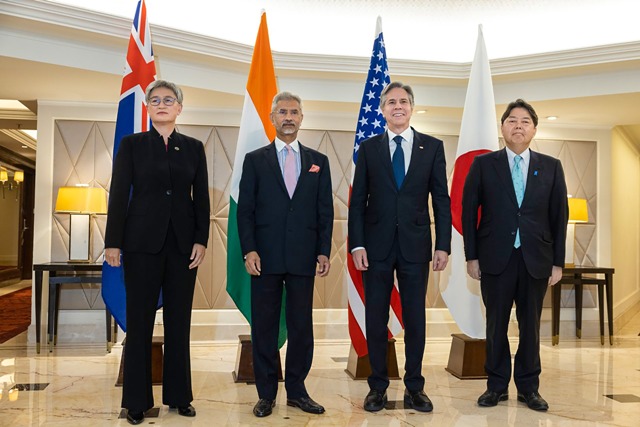The United States and India have reiterated their commitment to collaborating in the Quad Counterterrorism Working Group and other international forums to promote mutual security interests in the region while upholding a free and open Indo-Pacific. Both nations shared insights on the procedures for designating terrorist entities and individuals, as stated by the US State Department in an official press release.
The dialogue between the US and India occurred during the 20th meeting of the US-India Counter Terrorism Joint Working Group and 6th Designations Dialogue on March 5 in Washington, D.C. Ambassador Elizabeth Richard, Coordinator for Counterterrorism at the US Department of State, and Ambassador K D Dewal, Joint Secretary of Counter Terrorism at the Union Ministry of External Affairs, led their respective inter-agency delegations.
They emphasized the enduring value of the comprehensive US-India global partnership and renewed their dedication to combating terrorism and enhancing regional security as essential components of their broader bilateral cooperation.
Both nations underscored terrorism’s persistent threat to international peace and security, emphasizing the importance of countering terrorism for the well-being of Americans, Indians, and global citizens.
The participation of diverse departments and agencies from both countries demonstrated their recognition that countering terrorism necessitates an inclusive and comprehensive approach, relying on bilateral coordination for effective information sharing and promoting security, stability, and prosperity in the region.
The discussion also addressed emerging terrorist threats and tactics, including the utilization of the internet and new technologies. The commitment to information sharing, capacity building, and ongoing bilateral and multilateral efforts to address these challenges was reiterated.
Furthermore, the US and India called for accountability for the perpetrators of the 26/11 Mumbai and Pathankot terrorist attacks and urged concerted action against all terrorist groups, including those designated by the United Nations Security Council 1267 Sanctions Committee, such as al-Qaida, ISIS/Daesh, Lashkar-e-Tayyiba (LeT), and Jaish-e-Mohammad (JeM).
Both sides pledged to bolster law enforcement and judicial collaborations in support of the rule of law, including through enhanced cooperation on mutual legal assistance requests and information sharing.

















